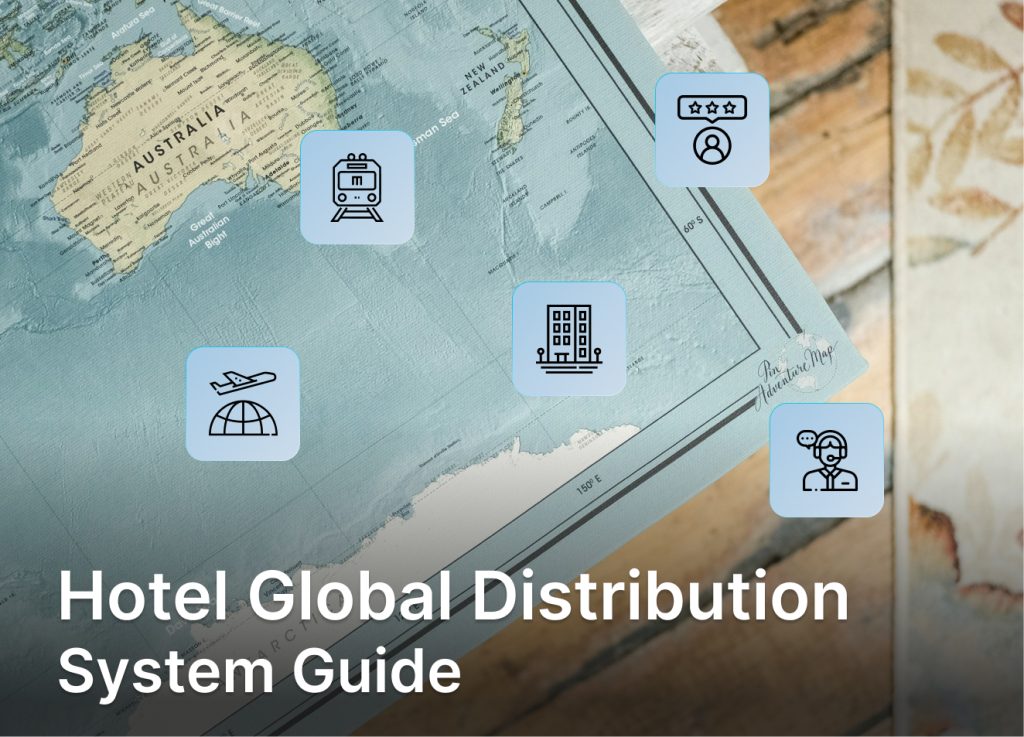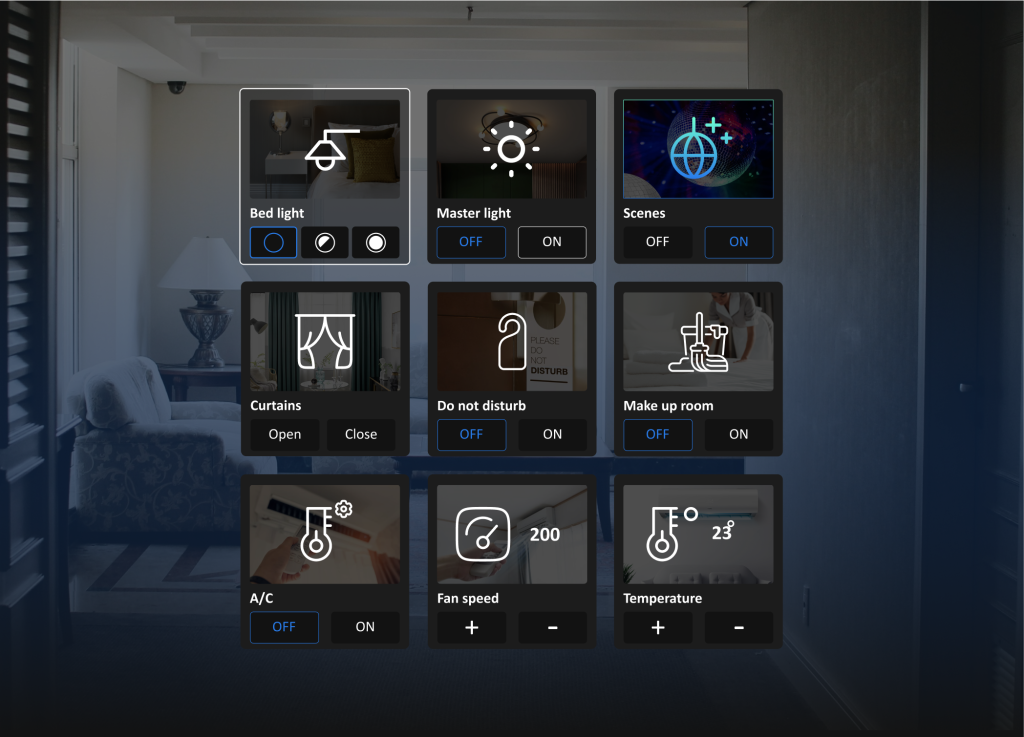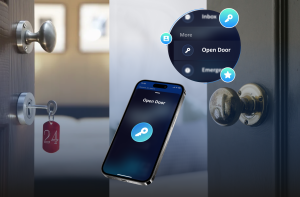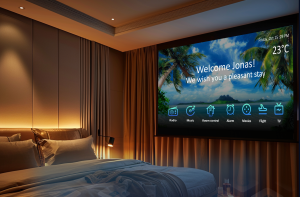We live in a busy modern world where technology greatly pervades our daily lives. When was the last time you went a whole day without using your computer, phone, or TV?
With a 5% growth in market size to $1.5 trillion, the hotel and resort industry is at the forefront of the latest innovations. Hotel technology trends play a massive role—enabling owners to save costs, maximize visitor time, and enhance guest satisfaction.
Amongst the top 60 global travel and mobility corporations, artificial intelligence (AI) and machine learning (ML) accounted for two-thirds of all tech investments, followed by the Internet of Things (IoT) and immersive tech (according to a 2024 study).
To stay competitive in this ever-changing landscape, hospitality businesses must keep abreast of the latest technology trends in the hotel industry. Today’s guests are tech-savvy with high expectations—something no enterprise can afford to ignore.
So, what are the latest trends in the hotel industry, and how can you leverage them for your own success?
To keep you current and ready for developments in the hospitality sector, we have compiled a list of new hotel technology trends for 2024. This article also covers:
- The evolution and role of technology in the hospitality industry
- The benefits of hotel technology trends
- Challenges in implementing hotel smart room technology and other advancements
Ready to uncover the latest trends and gain a competitive edge? Read on.
Key Takeaways
- Hotel technology trends date back to the 1960s, when InterContinental developed novel hotel technologies, including wheelchair-accessible rooms, ice and snack machine access, and foldable drying lines.
- Hotel smart room technology allows guests to control lighting, temperature, and entertainment via apps or voice commands.
- Hotels transform room TVs into interactive tools for personalized guest services.
- By tailoring their offerings to each guest’s specific needs using data analytics and artificial intelligence (AI), hotels can greatly enhance the general guest experience.
- Automation in the hospitality industry improves team coordination, saves time spent on manual tasks, and enhances business efficiency.
- Typical challenges include integrating different systems, safeguarding against cyberattacks, and balancing personalization with privacy while following data protection regulations.
- Technology in the hospitality industry can distinguish a brand from competitors through customization.
- As technology continues to advance, staying updated with emerging trends and innovations will be crucial for maintaining a competitive edge and meeting evolving guest expectations.
The Evolution of Hotel Technology
Hotel technology trends have been around for decades, significantly improving guest satisfaction and operational efficiency. Some of the most notable advancements date back to the 1960s. Check them out on the below timeline.
- 1960s: InterContinental developed novel hotel technologies like wheelchair-accessible rooms, ice and snack machine access, and foldable drying lines.
- 1970s: First created by the German business Siegas, the minibar soon became a common sight in upscale hotels. Once alcohol was kept in the refrigerator at Hilton Hong Kong, sales increased by 500%.
- 1980s: IBM became well-known thanks to the Personal Computer. This created the path for the Macintosh, Motorola’s cell phone, Microsoft, and the World Wide Web. These innovations preceded some major technology trends in the hotel industry. For example, one could check in and book rooms at the Westin using major credit cards. Days Inn created a reservation system that was accessible for communication, while Teledex Corp displayed the first phone made exclusively for use in hotel rooms. VingCard also built the optical-electronic key card, and Holiday Inn arranged a standard payment system for ticket agents.
- 1990s: Computers started to permeate daily life, and office work became more streamlined. This made information technology (IT) a significant sector everywhere. Search engines like Google and Yahoo transformed the hospitality game by allowing guests to easily interact with individuals across the globe.
- 2000s: Six firms joined the Wireless Ethernet Compatibility Alliance (WECA) at the start of the decade to help improve Wi-Fi. As this technology developed, businesses and consumers found new uses for it. For example, having capabilities like a virtual keyboard and a touchscreen interface that anybody could use, the iPhone’s release in 2007 altered public perceptions of mobile technology. In 2009, Intelity unveiled the first hotel mobile app in an effort to improve the guest experience and streamline business operations.
- 2010s: Apple debuted the iPad, and Conrad Hotels & Resorts debuted the first hotel brand app with service capabilities in 2012. Such hotel room technology trends have enhanced the guest experience, enabling rapid access to various services and activities, including home automation, live streaming, online shopping, and banking.
- 2020s: Today, hotel smart room technology plays a major role in the industry, from mobile keys for check-in and streaming of popular shows to online services and value-added loyalty rewards. Hotels have also changed their back office systems to enable more seamless financial and operational efficiency, thus reducing costs. Moreover, mobile SaaS apps allow staff members to take orders and bookings and check guests in and out anywhere they like—increasing customer satisfaction and enhancing brand loyalty.
As 2030 approaches, it’ll be interesting to see what hospitality technology trends will surface by the end of the decade.
The Role of New Technologies in the Hotel Industry
Today’s guests and visitors are tech-savvy, internet-aware, and highly demanding. They expect every contact to be straightforward, fast, and unambiguous. How could your hotel meet these needs?
Adopting hotel technology trends can make things easier, allowing for:
- Streamlined Operations: With technology, manual tasks can be automated. Hotel staff can thus be more organized and productive—they can serve more guests without lowering the level of their service.
- Enhanced Efficiency: For the same reason you’d use a calculator instead of writing down math problems, hotel technology reduces human error, allowing for more accurate inventory, resource, financial, and booking accuracy. With technological advancements, hotels become well-oiled machines that operate better and free up staff to spend time on other vital aspects of the guest experience.
- Tailored Guest Experiences: Hotel smart room technology and other innovations allow venues to improve and customize the general guest experience with products and services that fit the specific needs of each guest, typically using data analytics and artificial intelligence (AI). This means finding out more about what people want and delivering that to them.
5 Key Hotel Technology Trends
Hotel technology trends in the hospitality industry are changing guest interactions and operations. Let’s explore five of the main developments that are revolutionizing the market.
1. Hotel Digital Key Systems
Checking in wasn’t always a straightforward process—until recently. Thanks to technology, this very time-consuming job can now be done much more quickly and efficiently.
Since the introduction of digital key systems and smartphone check-ins, the entire process from arrival to departure has become much faster and smoother. When everything is done over the phone, hotels typically require guests to check in at the front desk before going to their rooms.
Conversely, when guests use a hotel app to check in, their phones act as room keys, negating the need for front-desk check-ins. This convenience speeds up the process of contactless transfers.
2. Hotel Apps
These days, everything is online, and app adoption is widespread. In fact, 94% of Millennials use online banking services, with 97% of Gen Zers set to follow by 2027. Meanwhile, the number of apps has increased by a whopping 82% since 2016, with the average American spending 70% of their digital media time on mobile apps. For the hotel industry, mobile apps make it easy for guests to find their tickets, check in and out, make payments online, look at pictures of available rooms, and talk to hotel staff.
Push alerts are also a terrific method to stay in touch with visitors long after they have gone. According to a 2020 study, 80% of hotel visitors would download a hotel app for these very reasons.
3. Internet of Things (IoT)
Internet of Things or IoT devices are network-enabled physical devices with sensors or software—and perhaps one of the biggest innovations in hotel smart room technology. Using an app or a voice-activated assistant, hotel guests can do things like adjust the lights, change the temperature, and use entertainment systems—all without complicated setups or confusing controls.
Today, many hotels, lodges, and resorts utilize IoT devices to provide an elevated guest experience that’s seamless, immersive, and tailored to the unique needs of their guests. This results in quantifiable benefits like increased customer engagement, satisfaction, and loyalty.
However, the benefits of IoT extend far beyond the guest experience. Hotel owners can leverage IoT technology to reduce losses, waste, and maintenance expenses, automate supply chain operations, and create additional revenue opportunities—all increasing profitability. Indeed, IoT trends in the hospitality industry are seeing significant adoption, with IoT in the resort and hotel sector expected to reach a market value of $177 billion by 2031.
4. Artificial Intelligence and Chatbots
Although artificial intelligence seems like a novel technology, it’s been around for a while now—and it’s here to stay. Hotel managements today highly value artificial intelligence since it enables them to analyze customer data and demand trends for more effective marketing plans and tailored packages that satisfy their visitors.
AI hotel solutions can also be employed in the background to expedite procedures, reduce downtime through predictive maintenance, and optimize resource allocation. Using predictive modeling, AI-driven hotel technology can optimize inventory management, energy management, staff scheduling, and more.
According to a 2023 survey of global hotel chains, respondents ranked AI as the top area for innovation within the next two years. Of these, 77% see the biggest opportunities in AI and ML for environmental protection through the use of AI-powered waste, water, and energy management tools.
AI chatbots are also one of the biggest current trends in the hospitality industry. Instead of paying someone to text or answer the phone, hotels can use AI chatbots to handle booking inquiries and customer service requests, providing personalized recommendations 24/7. Once these artificial intelligence systems are configured, their cost is negligible. You can thus simultaneously save money and give your guests customized experiences and services.
5. Smart TV Solutions
The Boston Park Plaza Hotel first introduced radios into hotel rooms in 1927, followed by television sets at the Roosevelt Hilton in New York City in 1947. In the 1960s, hotels and other lodging businesses promoted novel color televisions, and during the 1970s, pay-per-view and free movie options were among the best new hotel technology trends. Today, the landscape has evolved further as smart TVs do more than offer in-room entertainment. They also provide hotel owners with new ways to generate additional income.
Are there TVs in your hotel rooms? Then, allow them to boost your earnings and enhance your visitors’ experience.
Elevate your property system management and guest experience by implementing a smart, intuitive solution that’s easy for personnel to use and comfortable for guests.
By transforming your hotel room TVs into smart assistants, HotelSmarters makes it easy to offer your guests everything from customized welcome messages and service recommendations to tailored orders and add-ons.
There’s more to our end-to-end hotel middleware solution than just IPTV applications. Here are a few additional key benefits:
- Increased Brand Awareness: Customizable interfaces allow you to display hotel branding and promotions directly on guest screens, increasing brand recognition.
- Elevated Guest Experiences: A rich library of diverse satellite TV and video-on-demand content delights visitors and makes them feel at home.
- Added Convenience With Multi-Screen Compatibility: Our all-in-one solution supports popular platforms and allows content access across various mobile devices.
- Seamless Communication: Make your guests feel special with automatic language selection, in-room service ordering, and real-time information updates on flights and weather.
- Increased Revenue: Get insights into guest preferences and viewing habits to tailor your services and marketing strategies for optimal impact. You can also implement custom informational or advertising channels for your hotel’s products and services, creating more opportunities for additional revenue.
Do you want your hotel to stand out from the rest and keep your guests coming back?
Partner with HotelSmarters today!
Benefits of Adopting Hotel Technology Trends
Using technology in the hospitality industry comes with several advantages. It greatly enhances the visitor experience, smooths out services, and enables better cooperation and productivity among staff members.
Let’s explore a few more benefits of adopting hotel technology trends.

1. Provides Simplified Billing and Data-Driven Revenue Management
Hotel technology trends like implementing a revenue management platform allow for simplified and automated payments for rooms, services, products, and smart TV content—streamlining your billing processes so you can easily manage payments.
It’s one of the future trends in hotel payment processing technology that many venues can’t do without if they wish to stay ahead of the competition. With a revenue management platform, you can also leverage robust analytics to gain actionable insights into guest preferences, purchases, orders, and even TV-watching activities. Additionally, you can set customizable rules and automated alerts, allowing you to make informed decisions based on real-world data that maximize revenue potential.
2. Improves Team Coordination
Technology improves teamwork and facilitates effective task completion by your team. Hotel management apps and platforms can keep staff updated with tasks and let the front desk know when a room is ready.
3. Automates Tedious Tasks
Certain hotel operations are monotonous and time-consuming. Automation in the hospitality industry has changed that. Such technologies streamline processes like check-in, booking, and housekeeping, reducing wait times and human error. Even the tiresome night audit can be said farewell to with night audit automation.
4. Improves the Guest Experience
Hotel technology trends are trends for a reason—they allow hotel brands to set themselves apart from rivals through aspects like customization. Keeping track of guest preferences further enhances service quality, which attracts recurring visitors. You can make use of customer preferences for various aspects, from room temperature and music choice to preferred kind of pillow—thus boosting customer satisfaction and, in turn, brand loyalty.
Challenges in Implementing Hotel Technology
Like all market shifts, hotel technology trends come with a few challenges. But these difficulties aren’t just roadblocks; rather, they inspire ongoing industry innovation. Let’s look at a few of the major obstacles below.

Challenge 1: Integration and Compatibility
The hotel sector is increasingly dependent on more technologies, which complicates integration. People using several systems for different jobs—point-of-sale, property management, reservations, and customer relationship management (CRM)—often lead to integration issues. Should these systems fail to communicate effectively, inefficiency and a confused experience for guests could follow.
Many systems also store data in different ways, making data sharing difficult for programs aiming for portability. Moreover, several hotels still use outdated gear and software that are incompatible with modern technologies.
However, with more recent systems, it’s still untrue that all software systems can interact. If systems apply different data formats, communication protocols, or technological standards, they may be unable to cooperate.
That’s why an all-in-one revenue management platform with staff training and support included is the best option for hotels looking to modernize their operations. Request a demo to find out how our end-to-end solution can benefit your business.
Challenge 2: Safeguarding Data
Since they hold sensitive information and have several means of access, hotels can be easy targets for cyberattacks. According to a Trustwave report, over 30% of hotel institutions reported at least one data breach in their company’s lifetime, highlighting the importance of ample security measures.
Hotels, casinos, event venues, and other such establishments are especially vulnerable as companies implement more smart integrations. Every IoT gadget links itself to a central network and the internet, implying higher security dangers with every additional IoT device, such as thermostats and smart door locks.
To mitigate these threats, hotel managers and owners must implement robust cybersecurity policies and only employ the services of trusted vendors like HotelSmarters.
Challenge 3: Personalization vs. Privacy
Though hotel guests desire more and more tailored experiences, there is a thin line separating privacy violations from personalized experiences. Clever systems, including artificial intelligence (AI) technologies, can gather visitor data to analyze behavior better and generate tailored recommendations.
On the other hand, hotel companies have a responsibility to keep their guests’ data safe. With the proper data privacy controls, protections, and protocols in place, establishment owners can still benefit from data-driven analytics to provide personalized experiences to their guests.
FAQs
What is smart room technology in the hospitality industry?
Hotel smart room technology refers to modern digital solutions and IoT devices put directly into hotel rooms. Rooms are equipped with devices that can change lighting, temperature, handiness, entertainment, and many other services, which can be controlled by voice or apps on mobile phones for the comfort of guests.
What is IoT in the hotel industry?
The Internet of Things (IoT) for hotels implies using internet-connected linked devices and sensors as part of a larger network. It combines related systems and allows smart controls in each room, as well as other processes or aspects like checks and services, energy management, and personalized greetings.
What is an example of a smart hotel?
YOTEL Singapore Orchard Road Hotel is a smart hotel in Singapore that contains smart self-check-in kiosks, comfortable cabins called Sleepstations with adjustable SmartBeds, Technowalls with mood lighting, and smart TVs. The hotel also utilizes service robots, particularly for room service, where specific requirements, such as additional items, are delivered to guests’ rooms.
What are the benefits of using a smart hotel middleware platform?
A smart hotel middleware platform enhances guest experiences by providing seamless content management and flexible TV app integration. It allows for easy customization, enabling hotels to personalize their services and interfaces, display relevant ads, improve brand awareness, and meet guest preferences. This results in streamlined operations, heightened guest satisfaction, and increased revenue opportunities.
How can hotels benefit from using a revenue management platform?
A revenue management platform helps hotels maximize profitability by optimizing, automating, and simplifying billing processes. With data-driven insights, hotel owners can implement targeted marketing campaigns showcasing products and services relevant to each guest—all from one central dashboard.
What are the advantages of a smart TV management solution?
A smart TV management solution turns your regular smart televisions into revenue-generating smart assistants. Hotels can use such a solution to offer personalized content and streaming services from a vast library of content. It also provides data insights for better guest engagement with informational updates that are important to your guests, like weather and flight statuses. A smart TV management platform also creates additional revenue opportunities through pay-per-view and advertising.
Conclusion
At every phase of the customer journey, technology like artificial intelligence and IoT devices can significantly enhance guests’ experiences both online and in-person—particularly for the hotel and resort industry.
As a hotel manager or owner, digital systems like revenue management, smart TV assistants, and hotel middleware can simplify your processes, optimize your workflows, save you money, and generate revenue.
In addition, following the newest hotel technology trends will help you stay ahead of the game and project what your clients will desire as you develop fresh ideas and apply the most modern tools to offer first-rate service.
If you want to stay ahead of your competitors, these hotel technology trends are worth considering. Get in touch with us today if you’re ready to take your establishment to the next level.












